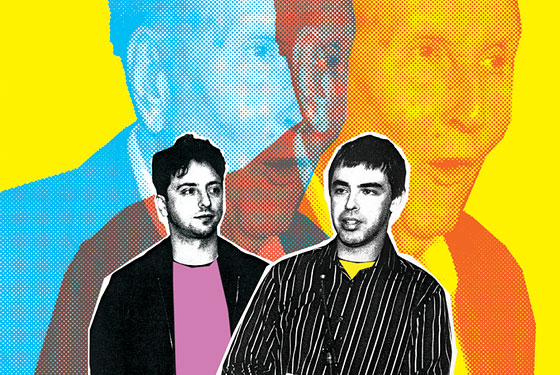You are hereBlogs / WcP.Humor's blog / US court order: Google must reveal all users’ information - every user who has ever watched any video on YouTube, worldwide
US court order: Google must reveal all users’ information - every user who has ever watched any video on YouTube, worldwide

(quote)
Google expressed disappointment and privacy groups voiced outrage Thursday after a judge ordered Google to give entertainment giant Viacom details of video-watching habits of visitors to its popular video-sharing website YouTube. On Tuesday US District Court Judge Louis Stanton backed Viacom's request for data on which YouTube users watch which videos on the website. Viacom is seeking the data as potential evidence for a billion-dollar copyright suit against Google, which Viacom charges acts as a willing accomplice to Internet users that put clips of Viacom's copyrighted television programs on YouTube.
The US court has ordered Google to hand over the "logging database" which is updated each time a video is watched on YouTube. The database contains the unique login ID of the user who watched it, the time when the user watched it, the IP address (unique online identifier) of the computer used to watch the video and the identifier for the video. The database is stored on live servers at Google and equates to 12 terabytes of storage. The judge also ruled that Google should divulge the details of every video that has ever been removed from YouTube, for whatever reason. If you've ever watched a video on YouTube then the details of that viewing will be stored somewhere in that database. This copyright case might be taking place in the US but it would appear the logging database makes no distinction between users in different countries.

"We are disappointed the court granted Viacom's overreaching demand for viewing history," Google senior litigation counsel Catherine Lacavera told AFP in an email Thursday. But in what Google claims as a partial victory, Stanton denied Viacom's request to get its hands on secret source code used in YouTube video searches as well as for Internet searches. Stanton also refused a Viacom request to order Google to provide access to the videos YouTube users store in private YouTube files.
Google lawyers opposed each of the Viacom requests, which were made during a "discovery" evidence-gathering phase of a lawsuit filed in March of last year in US District Court in New York state. "We are pleased the court put some limits on discovery, including refusing to allow Viacom to access users' private videos and our search technology," Lacavera said. "We will ask Viacom to respect users' privacy and allow us to anonymize the logs before producing them under the court's order."
Google condemns the lawsuit as an attack on the underpinnings of the Internet, while Viacom argues that the California-based Internet search colossus and especially its subsidiary YouTube are involved in "massive" copyright infringement. The Viacom lawsuit has been merged with similar civil litigation being pursued by the Premier League of England's Football Association, which says soccer game clips are routinely posted on YouTube without authorization. Google shields itself with 1998's Digital Millennium Copyright Act, US legislation that says Internet firms are not responsible for what Internet users put on websites.

Stanton brushed aside privacy concerns on Tuesday while ordering Google to give Viacom log-in names of YouTube users and Internet protocol (IP) addresses identifying which computers they used for viewing videos. Stanton contends that Viacom needs more than pseudonyms and IP numbers that are tantamount to addresses on the Internet to identify individual YouTube users.
Electronic Frontier Foundation attorney Kurt Opsahl called the court's ruling a significant reversal to privacy rights. The judge's ruling ignores US federal law as well as a "fiasco" that resulted after America Online gave researchers what it thought was anonymous search data, Opsahl said. People's online searches can unintentionally divulge identities even without accompanying onscreen nicknames or IP addresses, according to Opsahl. "The court's erroneous ruling is a set-back to privacy rights and will allow Viacom to see what you are watching on YouTube," Opsahl said. "We urge Viacom to back off this overbroad request and Google to take all steps necessary to challenge this order and protect the rights of its users."
(unquote)
Images courtesy of Ateliér 444, OverTheLimit.info, AFP


















